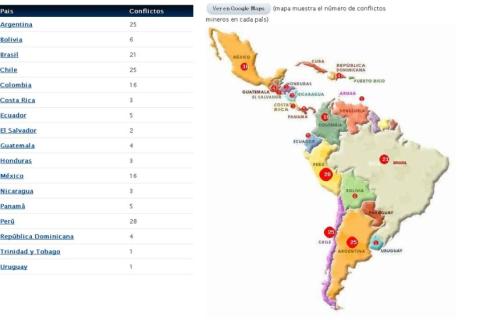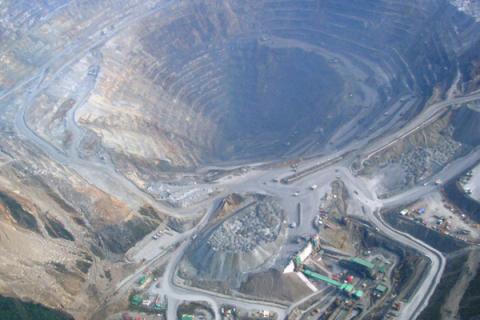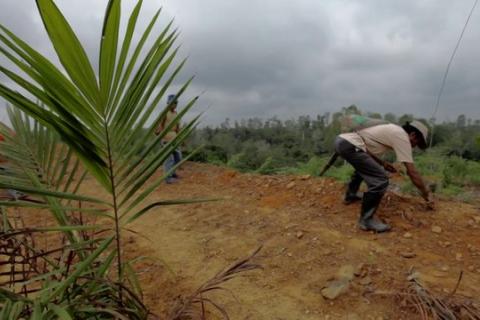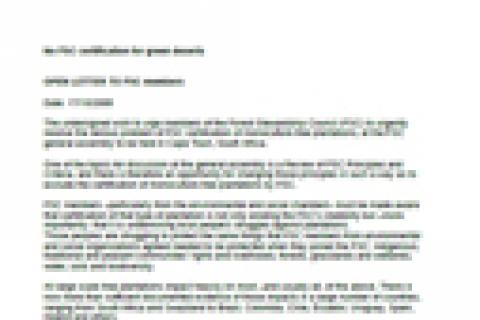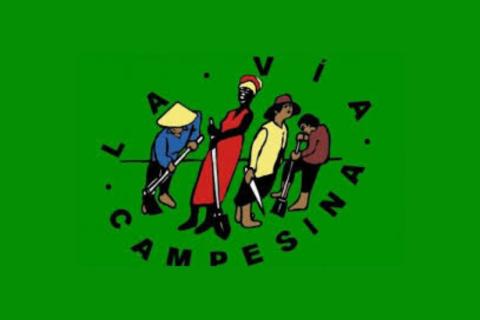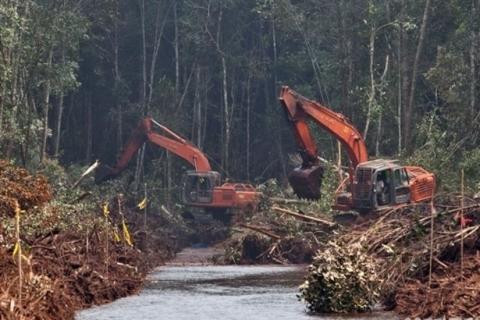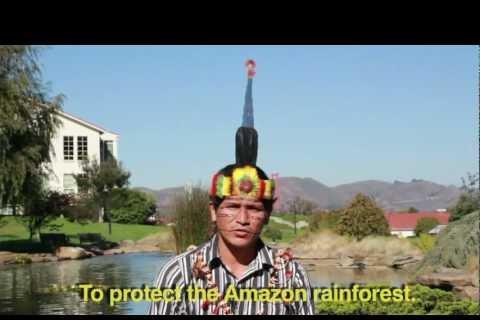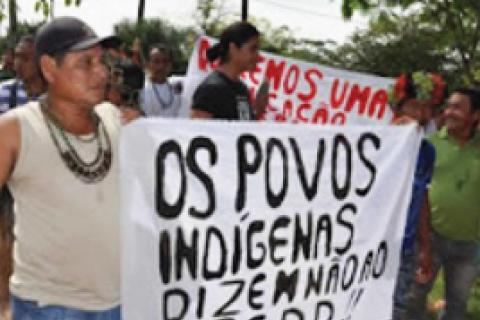The Observatory of Mining Conflicts in Latin America (OCMAL) and Latin American Observatory of Environmental Conflicts (OLCA) have developed the “Map of Mining Conflicts in Latin America” to serve as a database and information system for community management of mining-related social and environmental conflicts in the region. http://basedatos.conflictosmineros.net/ocmal_db/
Other information
“World Summit on Sustainable Forest (-destruction)”, a satirical blog on the summit that will be held on March 5th-6th 2013 in Stockholm (Sweden). You are invited to attend or follow this World Forgery Summit on sustainable forest destruction. Some of the key questions in the agenda:
*Can we find a way to rebrand monoculture plantations as being sustainable?
*Is there a way to make the bankrupt carbon trading system look like a part of the solution to the climate crisis?
“Mining, plantation firms reported for rights abuses”, a Jakarta Post headline informs that mining and plantation companies are among the actors that should be held responsible for numerous human rights abuses in the country, according to a National Commission on Human Rights (Komnas HAM) report. The rights commission revealed that companies ranked second — trailing behind the National Police — in its list of institutions reported for human rights violations.
“Manufacturing Consent” is a film that features evidence and first-hand testimony of the abuses of PT Borneo Surya Mining Jaya (PT Borneo) in Muara Tae. The company, a subsidiary of First Resources Ltd, bulldozed farmland and forests belonging to the indigenous community of Muara Tae, assisted by the intimidation of armed police brought in to protect the company, while trying to obtain RSPO certification under fake information.
Only available in Portuguese.
Forum Mudanças Climáticas e Justiça Social, Comissão Epsicopal Pastoral para o Serviço da Caridade, da Justiça e da Paz, Conselho Indigenista Missionário.
Download here the full document in Portuguese.
The Mundukuru indigenous community in the Brazilian Amazon state of Para decided to cancel a contract that would have allowed the Irish company “Celestial Green Ventures” to sell carbon credits from forests in their territory. The agreement was signed earlier this year giving the Irish company the right over the carbon in forests inside the indigenous territory.
“We are going to cancel the deal. Many in the tribe didn’t want it, so to avoid problems we decided to stop it,” said Candido Waru, leader of a local association of the Munduruku people.
La Via Campesina International met in Surin, Thailand for the First Global Encounter on Agroecology and Seeds to share experience and construct a strategy and vision on agroecology and seeds.
In Thailand there is a growing shift made by small-scale farmers to move from the green revolution based model of industrial farming into agroecology which La Via Campesina thinks is the corner stone of food sovereignty.
Several banks and other financial institutions around the world have been warned on last 6 November to avoid investments in pulp and paper mills associated with deforestation and human rights abuses in Indonesia.
Sixty environmental and social non-governmental organisations, including a dozen Indonesian civil society groups, have sent letters asking for assurances that the financial institutions will not invest in increased pulp milling capacity by Asia Pulp and Paper (APP) or other companies associated with the Sinar Mas Group until reforms have been achieved.
The Pindaré Caru indigenous movement, composed of the Guajajara and Awá people, blocked the VALE multinational mining railway this past Oct. 3 in the town of Alto Alegre do Pindaré, State of Maranhão.
The blockade was mounted in protest to the loosening of Brazilian legislation on indigenous rights (measures such as PEC 215 and Resolution 303/2012 by the State Attorney General). The aim of this loosening is to make it easier for multinational companies like VALE to appropriate indigenous territories and thus benefit even further from the exploitation of these riches.
Against oil extraction in the Amazon forest in southern Ecuador:
By Sindicato dos Trabalhadores Rurais de Xapuri – Federação do Povo Huni Kui do Acre.
What are the real problems of forest peoples in Acre?
Why aren’t REDD and environmental services a solution to these problems?
What concerns forest peoples about REDD and environmental services?
Download the full document here
New report: “Recognising Sacred Natural Sites and Territories in Kenya: An Analysis of how the Kenyan Constitution, National and International Laws can Support the Recognition of Sacred Natural Sites and their Community Governance Systems” by Adam Hussein Adam. Published by: Institute for Culture and Ecology (Kenya), African Biodiversity Network & the Gaia Foundation
